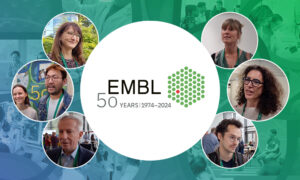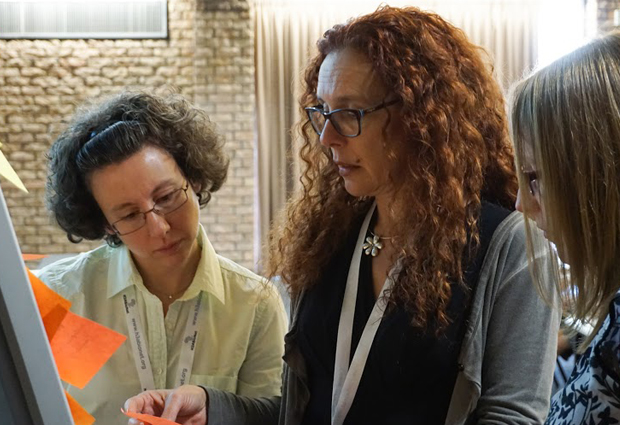
Read the latest Issue
What do you get when you put a group of bioinformatics trainers in a room with an ample supply of flipcharts, multi-coloured sticky notes and coffee? Four years ago, the outcome of such a meeting was GOBLET (Global Organisation for Bioinformatics Learning, Education & Training) – a professional body for bioinformatics training. Since that inaugural meeting in Uppsala, Sweden, GOBLET has held meetings in Amsterdam, Toronto and, in November 2015, Cape Town.

GOBLET members make the most of their annual gathering by organising adjacent training events for the local community. In Cape Town’s case, the term ‘local’ was interpreted rather broadly – the two-day workshop on best practices in bioinformatics training welcomed budding trainers from throughout Africa. The host, EMBL-EBI alumna Nicky Mulder, coordinator of pan-African network H3ABioNet, recruited an enthusiastic group of new and experienced trainers from all corners of the vast continent.

One of the challenges for bioinformatics training is giving trainees access to those working at the cutting edge of their field.
Day one of the workshop, which took place at the University of Cape Town Medical School, was tailored to new trainers. One of the challenges for bioinformatics training is giving trainees access to those working at the cutting edge of their field. To address this, EMBL-EBI’s Sarah Morgan, together with Gabriella Rustici from the University of Cambridge (another EMBL-EBI alumna), delivered a one-day ‘conversion course’ that provided bioinformatics experts who have little or no previous experience of training with a one-day primer on how people learn.
The beginners’ course covered the use of different learning methods and the importance of setting clear objectives for learning, before moving onto the practicalities of putting together a new training session and how to format the training to meeting participants’ expectations. Delegates were pointed to resources that provide reusable training materials, including EMBL-EBI’s Train online the GOBLET training portal, ELIXIR’s Training e-support portal (TeSS) and a number of Github repositories.
The trainers were extremely enthusiastic about their experience, with highlights including recognising and adapting training to different learning styles, writing better learning objectives, and long-term feedback for assessing training impact
Day two was tailored to more experienced trainers – several GOBLET members joined the pan-African audience, taking the delegates to more than 50. Proceedings kicked off with a session on how best the bioinformatics trainer community can support each other, and the use of technology to reach larger audiences: the Gulbenkian Institute’s Pedro Fernandes gave an enlightening talk on simultaneously teaching a local and a remote class.
It’s extremely helpful to have pointers as to what bioinformatics competencies scientists in different roles might realistically have.
When developing a new course or curriculum, it’s extremely helpful to have some pointers as to what bioinformatics competencies scientists in different roles might realistically have. A taskforce of the International Society of Computational Biology (ISCB) has developed competency profiles for different types of professionals; delegates used these profiles to shape training for different scenarios related to application of bioinformatics to healthcare or agriculture – providing invaluable feedback on the ISCB profiles in the process. Nicky Mulder, Celia van Gelder and Fran Lewitter presented examples of how competency profiles have been, or will be, used to develop new training tailored to the needs of different audiences.
The event ended with a talk on criteria for recognising training excellence, led by Fernandes, before delegates repaired to Cape Town’s magnificent waterfront for a splendid wrap-up dinner.

Looking for past print editions of EMBLetc.? Browse our archive, going back 20 years.
EMBLetc. archive